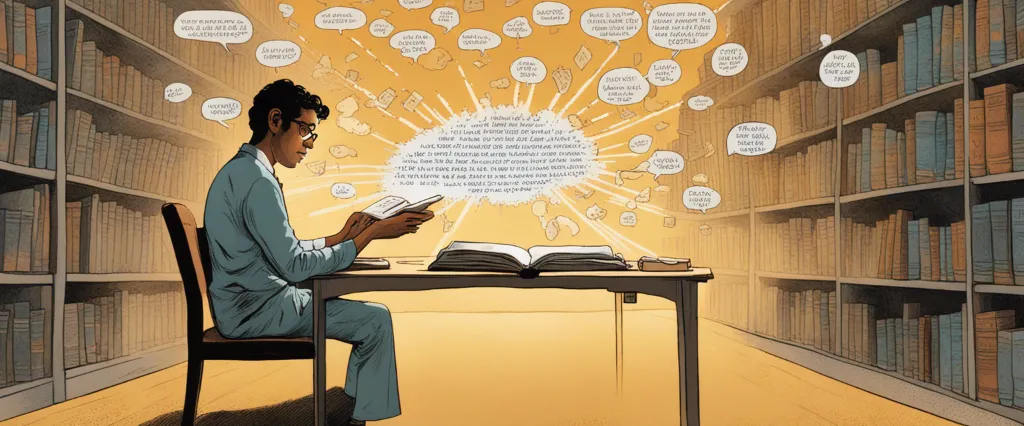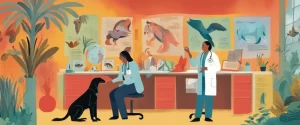
In the realm of self-improvement and personal growth literature, two captivating books have emerged, each offering invaluable insights from vastly different perspectives. Atul Gawande’s “Being Mortal” and David Goggins’ “Can’t Hurt Me” delve deep into the human experience, exploring the complexities of mortality and the pursuit of mental and physical resilience, respectively. While seemingly divergent in subject matter, these two remarkable works share a common thread – the ceaseless exploration of the human spirit and its inherent desire for meaning, purpose, and the relentless pursuit of personal fulfillment.
Atul Gawande, a distinguished surgeon and accomplished writer, tackles the daunting topic of mortality in “Being Mortal.” With compassion and honesty, Gawande invites readers to contemplate the intersection of medicine and humanity as he delves into the modern approach to aging and the medicalization of death. Drawing from his own experiences as a doctor, as well as anecdotes from patients and their families, Gawande navigates the intricate terrain where medical advancements clash with the realities of aging and end-of-life care. Through meticulous research and introspection, Gawande prompts us to confront our society’s inherent discomfort with mortality, inviting us to question the conventional norms surrounding aging, caregiving, and dying.
On the other hand, David Goggins, a former Navy SEAL turned ultra-endurance athlete, imparts his awe-inspiring journey of self-mastery and resilience in “Can’t Hurt Me.” Goggins’ narrative is one of the indomitable human spirit, as he triumphs over adversity and pushes his physical and mental limits to unimaginable heights. With raw honesty, Goggins shares his experiences of childhood abuse, obesity, and the relentless pursuit of greatness. “Can’t Hurt Me” illuminates the untapped potential within us all, challenging readers to confront their self-imposed limitations and embrace discomfort as a catalyst for growth. Through sheer willpower and an unwavering determination to reinvent himself, Goggins reveals the untapped reserves of strength that exist within each and every one of us.
While “Being Mortal” and “Can’t Hurt Me” may seem to belong to separate genres, their parallel exploration of the human condition makes them an apt pairing for comparative analysis. Both books peel back the layers of societal expectations and conventional wisdom, challenging readers to reevaluate deeply ingrained beliefs about life’s purpose and our capacity to transcend adversity. As we embark on this comparative study, we will examine the threads that connect these two thought-provoking works, delving into the universal themes of mortal existence, resilience, and the pursuit of personal growth that permeate their pages. Through a juxtaposition of Gawande’s insightful exploration of mortality and Goggins’ unyielding determination in the face of adversity, this study aims to uncover the profound insight and wisdom these books offer, ultimately shedding light on the interconnectedness of the human experience.
Brief Summary of Two Books
Being Mortal by Atul Gawande
Being Mortal” by Atul Gawande is a thought-provoking book that explores the complex issues surrounding aging, illness, and mortality. Gawande, a practicing surgeon, delves into the medical and social aspects of end-of-life care, challenging common misconceptions and highlighting the importance of prioritizing quality of life.
The book begins with compelling personal stories and experiences of individuals facing mortality. Gawande then examines the historical shift in society’s approach to aging and dying, highlighting how medical advancements have prolonged life but often fail to address patients’ desires for autonomy and dignity.
Gawande explores various topics, including the pitfalls of nursing homes and the importance of allowing individuals to maintain independence and make their own decisions. He discusses the benefits of palliative care and hospice, emphasizing the importance of providing comfort and emotional support to patients facing terminal illnesses.
Through interviews and case studies, Gawande introduces the concept of practicing “slow medicine,” where healthcare providers prioritize patients’ values and goals and help them make informed decisions rather than focusing solely on extending life through aggressive treatments. He also addresses end-of-life conversations between doctors and patients, offering practical advice on how to navigate these difficult discussions effectively.
Ultimately, “Being Mortal” encourages readers to critically examine their own attitudes towards mortality, advocating for a more compassionate and patient-centered approach to end-of-life care. Gawande challenges the notion that simply prolonging life at all costs is the best approach, instead urging individuals to consider their values and preferences when it comes to the end of life.
Can’t Hurt Me by David Goggins
Can’t Hurt Me” is an autobiographical book by David Goggins, who shares his remarkable journey from a troubled and abused childhood to becoming one of the most resilient and accomplished individuals. The book is part memoir and part self-help guide, offering insights into Goggins’ relentless pursuit of personal growth and his philosophy on overcoming challenges.
David Goggins grew up in an environment dominated by abuse, poverty, and racism. Despite these obstacles, he went on to become a Navy SEAL, Army Ranger, and Air Force Tactical Air Controller. Goggins also broke multiple endurance records and completed some of the toughest endurance races in the world.
The book recounts Goggins’ transformation from a young man plagued by fear, self-doubt, and mediocrity to an individual with an extraordinary mindset capable of enduring extreme physical and mental challenges. Goggins emphasizes the importance of embracing discomfort, tackling one’s fears, and pushing beyond perceived limitations.
Throughout the book, Goggins shares personal anecdotes of his military training, showing the grueling process of becoming a Navy SEAL and the mental toughness required to survive special operations training. He also discusses his journey into the world of ultra-endurance races, where he repeatedly forces himself beyond his own physical and psychological thresholds.
Interspersed with his personal journey, Goggins provides practical advice and strategies for readers to apply in their own lives. He encourages individuals to adopt a “cookie jar” mindset, drawing strength from past accomplishments during moments of adversity. Goggins also emphasizes the importance of self-reflection, goal setting, and maintaining a relentless work ethic.
“Can’t Hurt Me” is an inspiring and motivating book that challenges readers to confront their own limitations, face discomfort head-on, and choose the path of resilience and personal growth. It serves as a reminder that no matter the obstacles, everyone has the potential to push beyond their perceived limits and achieve greatness.
Comparison between Two Books

Similarities in Positive Thinking
While Being Mortal by Atul Gawande and Can’t Hurt Me by David Goggins may seem like contrasting books due to their subject matter, they both shed light on the importance of positive thinking in different contexts.
Similarity 1: Overcoming adversity through mindset
In both books, the authors emphasize the power of positive thinking in overcoming challenges. Atul Gawande discusses how a positive mindset can help terminally ill patients find meaning and fulfillment in their remaining days. Similarly, David Goggins shares his personal journey of enduring severe physical and mental hardships by harnessing the power of positive thinking. Both authors highlight the importance of adopting a mindset that allows individuals to push their limits and find strength even when faced with seemingly insurmountable obstacles.
Similarity 2: Mindset’s impact on personal growth
Both Gawande and Goggins acknowledge that positive thinking plays a vital role in personal growth. Gawande explores the idea of embracing one’s mortality to live fully and meaningfully, emphasizing the need to maintain a positive attitude to make the most of life. Goggins, on the other hand, promotes the concept of embracing discomfort and using self-discipline to conquer personal limitations. In doing so, he stresses the importance of cultivating a positive mindset to achieve personal growth and accomplish extraordinary feats.
Similarity 3: Challenging societal norms through positive thinking
Both authors challenge societal norms through their discussion of positive thinking. Gawande challenges the conventional approach to aging and end-of-life care by encouraging a positive and empowering mindset for both patients and healthcare professionals. Goggins, meanwhile, challenges society’s comfort-seeking habits and advocates for embracing discomfort as a means to tap into untapped potential. By promoting positive thinking, both authors aim to dismantle limiting beliefs and inspire readers to redefine what is possible.
In summary, although Being Mortal and Can’t Hurt Me address different subjects, they share common ground when it comes to the importance of positive thinking. Both books highlight the power of positive mindset in overcoming adversity, facilitating personal growth, and challenging societal norms. By embracing positive thinking, individuals can find motivation, resilience, and the ability to defy their own limitations.
Divergences in Positive Thinking
Being Mortal by Atul Gawande and Can’t Hurt Me by David Goggins are two vastly different books in terms of their themes and subject matter. While both books touch on the human experience and offer valuable insights, there is a clear divergence in their perspectives on positive thinking.
In Being Mortal, Atul Gawande delves into the topic of mortality and the challenges faced by individuals nearing the end of their lives. He explores the realities of aging, illness, and the medical system, emphasizing the importance of accepting these inevitable aspects of life. Gawande delves deeper into the complexities of end-of-life care, highlighting the significance of quality of life over quantity, and how positive thinking alone may not suffice in dealing with the realities of mortality.
On the other hand, Can’t Hurt Me by David Goggins is a memoir that chronicles Goggins’ journey from a troubled childhood to becoming a Navy SEAL and ultra-endurance athlete. Goggins emphasizes the power of positive thinking and the limitless potential of the human mind. He advocates for pushing past physical and mental limits, overcoming obstacles by adopting an unwavering mindset focused on positivity, self-belief, and resilience.
The divergence between these books lies in their approach to positive thinking. Gawande’s Being Mortal takes a more realistic view, acknowledging the limitations of positive thinking in the face of mortality. He recognizes the importance of acceptance and finding ways to improve the actual quality of life rather than just relying on positive thoughts. Gawande’s emphasis is on ensuring a sense of dignity, autonomy, and comfort for individuals in their final stages of life.
Meanwhile, Goggins’ Can’t Hurt Me champions the idea that positive thinking can overcome seemingly insurmountable challenges. He emphasizes the importance of mental fortitude and resilience, pushing beyond self-imposed limitations. Goggins offers a mindset that believes in the potential for growth and achievement through relentless positivity and an unwavering belief in oneself.
In conclusion, the divergence regarding positive thinking in Being Mortal and Can’t Hurt Me highlights the different perspectives on its efficacy. Gawande acknowledges the limitations of positive thinking, prioritizing acceptance and quality of life in the face of mortality. On the other hand, Goggins emphasizes the power of positive thinking as a driving force for personal transformation and overcoming physical and mental obstacles.

Conclusion
Both “Being Mortal” by Atul Gawande and “Can’t Hurt Me” by David Goggins are highly regarded books with different focus areas. The choice of which one is more worthy of reading depends on personal interests and preferences.
“Being Mortal” deals with the topic of mortality, aging, and end-of-life care. Atul Gawande, being a surgeon, explores how the medical world often seeks to extend life without considering the quality of life. The book also dives into end-of-life decisions, and the importance of finding meaning and purpose in our final stages. This book is particularly useful for those interested in healthcare, gerontology, or people who want to gain a better understanding of how to approach aging and end-of-life choices.
On the other hand, “Can’t Hurt Me” by David Goggins is a memoir that chronicles Goggins’ path from an abusive childhood to becoming a Navy SEAL and an ultra-endurance athlete. It emphasizes the importance of mental toughness, pushing through limits, and overcoming adversity. Goggins shares his extreme experiences and the mindset that helped him overcome physical and mental obstacles. This book is more suitable for readers seeking personal development, motivation, and inspiration to push beyond their comfort zones.
Ultimately, the choice between the two books depends on your interests and what you’re seeking in a reading experience. If you’re looking for insights into mortality, aging, and end-of-life care, “Being Mortal” is the recommended choice. However, if you’re interested in personal development, mental toughness, and overcoming challenges, “Can’t Hurt Me” may be the better option for you.



